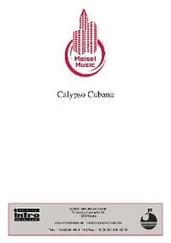“How do you figure?” Randy asked.
“That ‘Do not answer’ phrase. Why does Big Rock order Sky Queen to be silent? Because if Sky Queen acknowledges the call then somebody might be able to take a radio fix on her, estimate speed and course, and vector fighters—or launch ground-to-air rockets to shoot her down.”
Randy considered this. “Then Sky Queen is probably stooging around over enemy territory.”
“That’s good deduction but we can’t be certain. For all we know, Sky Queen may be hunting a sub off Daytona. It makes me wild, listening to the damn Air Force—you will please pardon me, Lib—but if the enemy is listening on this frequency it must make them wild too.”
Lib asked, “What did that ‘Authentication X-Ray’ stand for?”
“X-Ray is simply international code for the letter X. My guess is that before every mission they change the authentication letter so that the enemy can’t take over the frequency and give Sky Queen a false heading, or phony instructions.”
“You know, I enjoyed hearing that,” Lib said. “It gave me a nice feeling. Big Rock has a solid Midwest accent.”
Sam Hazzard moved a candle so that better light fell on his dials. “Big Rock won’t be back again tonight,” he said. “I’ve never heard him more than once a night. He makes his call and that’s it. I’ll try the thirty-one meter band again.”
In the candlelight Hazzard’s hands shone with the silky, translucent patina of age and yet they were remarkably deft. They discovered a fascinating squeal. His fingers worked the band spreader delicately as a master cracksman violating a safe and he pressed his face forward as if he expected to hear tumblers click. Very gradually, a faint voice replaced the squeal. He turned up the power. They heard, in English with an indefinite accent:
“Continuing the news to North America.
“The representative of the Argentine has informed the South American Federation that two ships with wheat have sailed for Nice, in southern France, responding to radio appeals from that city. The appeals from Nice say that several hundred thousand refugees are camped in makeshift shelter on the Cote d’Azure. Many are starving. The casino at Monaco and the Prince’s palace have been converted into hospitals.
“In a Spanish-language broadcast heard here today, Radio Tokyo announced that the Big Three meeting in New Delhi has approved preliminary plans for flying desperately needed vaccines and antitoxins to uncontaminated cities in Europe, North America, and Australia.”
“Big Three!” Randy said. “Who’s the Big Three?”
“Sh-h!” said the Admiral. “Maybe we’ll find out.”
The announcer continued:
“China, where ‘Save Asia First’ sentiment is strong, urged that first priority for vaccine aerial shipments go to the Soviet Union’s maritime provinces, where typhus is reported. India and Japan felt that the smallpox epidemic on the West Coast of the United States, Canada, and in Mexico should receive equal priority. The universal shortage of aviation gasoline will make any quick aid difficult, however…”
The squeal insinuated itself into the voice and subdued it. Hazzard caressed the band-spreader. “The atmospherics have been crazy ever since The Day.” Abruptly he asked Randy: “Do you believe it?”
“It’s weird,” Randy said. “Maybe it’s a Soviet bloc propaganda station pretending to be South American, set up to confuse us and start rumors. I’ll admit I’m confused. I thought the Chinese were in it, on the other side.”
“The Chinese never liked Russia’s preoccupation with the Med,” Hazzard said. “Maybe they opted out, which would be smart of them. It could be simpler. If they didn’t have nuclear capability we wouldn’t bother hitting them on The Day, and without nuclear weapons they wouldn’t dare stick their noses into a real war. If that was it, they were lucky.”
“I noticed that station quoted Tokyo? How is it you didn’t hear Tokyo?”
“I’ve never been able to pick up any Asiatic stations. I used to get Europe fine—London, Moscow, Bonn, Berne. Africa, too, especially the Voice of America transmitter in the Tangier. Not any more. Not since The Day.”
The signal cleared. They heard:
“…but as yet the Big Three have been unable to reopen communications with Dmitri Torgatz. According to Radio Tokyo, Torgatz headed the Soviet government while the Soviet Union’s capital was in Ulan Bator in Outer Mongolia. The medium-wave station operation from Ulan Bator is no longer heard.”
“That doesn’t sound like Soviet propaganda to me,” Randy said. “Who is Dmitri Torgatz?”
The Admiral glanced up at a shelf of reference works. He selected a slender book, Directory of Communist Leaders , found the name, and read: “Torgatz, Dmitri; born Leningrad 1903? Married, wife’s name unlisted; children unlisted; Director Leningrad Agitprop 1946–49; Candidate member Presidium 1950–53; Director water works, Naryan Mar, Siberia, since fall of Malenkov.”
“Looks like they had a shakeup,” Randy said. “Looks like they had to reach way down and find a minor league bureaucrat.”
“Yes. It’s surprising that Torgatz should be running Russia,” the Admiral said, “until you consider that a female, last on the list of Cabinet members, is running the United States.”
Randy could see that Lib wasn’t listening. She was staring at the tassel of a sword resting on pegs behind his head, her lips parted, eyes unblinking. Her thoughts, he had discovered, frequently raced ahead of his or sped down dark and fascinating byways. When she concentrated thus she left the party. She murmured, “Smallpox.”
Not understanding that Lib, mentally, was no longer in the room with them, Sam Hazzard inquired, “What about smallpox?”
“Oh!” Lib shook her head. “I think of smallpox as something out of the Middle Ages, like the Black Plague. It’s true that every so often it cropped up, but we always slapped it down again. What happens now without vaccine? What about diphtheria and yellow fever? Will they start up again? Without penicillin and DDT, where are we? All good things came to us automatically. We were born with silver spoons in our mouths and electric dishwashers to keep them sanitary and clean. We relaxed, didn’t we? What happened to us, Admiral?”
Sam Hazzard disconnected the radio’s batteries and pulled his chair around to face them. “I’ve been trying to find the answer.” He nodded at his typewriter and the books massed on his desk. “I’ve been trying to put it down in black and white and pass it along. Up to now, no bottom. All I’ve found out was where I myself—and my fellow professionals—failed. I’ll explain.”
He opened a drawer and drew out a folder. “I called this ‘A Footnote to History.’ You see, I was in the Pentagon when we were having the big hassles on roles and missions and it occurred to me that I might be one of the few still alive who knew the inside of what went on and how the decisions were reached and I thought that future historians might be interested. So I set it all down factually. I set down all the arguments between the big carrier admirals and the atomic seaplane admirals and the ICBM generals and pentomic division generals and heavy bomber generals and manned missile generals. I told how we finally achieved what we thought was a balanced establishment.
“When I finished I read it over and realized it was a farce.” He tossed the manuscript on the desk as if he were discarding unwanted fourth class mail.
“You see, I confused the tactical with the strategic. I think we all did. The truth is this. Once both sides had maximum capability in hydrogen weapons and efficient means of delivering them there was no sane alternative to peace.
Читать дальше












